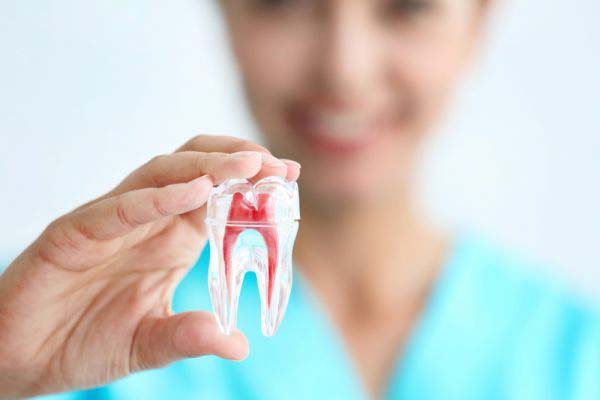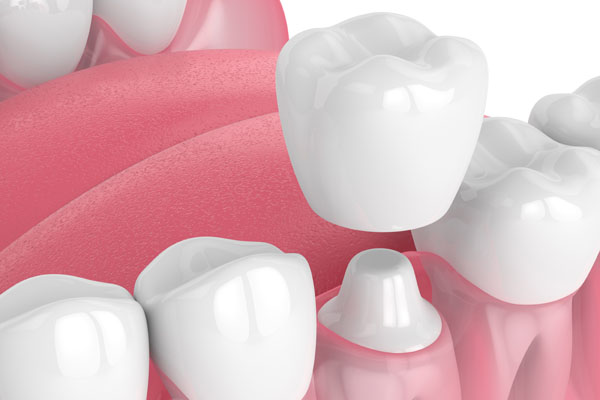How a General Dentist Can Help With Dry Mouth

Dry mouth is a condition that can be treated by a general dentist and is also known as xerostomia. When the salivary glands do not make adequate saliva to keep the mouth wet, the symptoms of dry mouth often show up. These can be caused by a variety of things, some as simple as medication and others as complicated as a specific medical condition.
The mouth makes saliva to do several things, including the following:
- Enhance taste
- Make it easier to swallow and chew
- Aid in digestion
- Neutralize acids that come from bacteria
- Wash away food particles
- Limit bacterial growth
If the salivary glands are not functioning correctly, it can cause problems with your gums and teeth. You may also notice that you do not enjoy food as much as you used to. Dry mouth can also cause problems with your overall health. Fortunately, there are many things a general dentist can do to treat this condition and improve your life.
Treating dry mouth
In-office treatments
When you have dry mouth, a dentist can use several treatments. They may prescribe a fluoride treatment to use at home and administer topical fluoride treatments in the office. They may also encourage you to use xylitol gum or antifungal or antibacterial mouthwashes. In some cases, it may be necessary to perform X-rays regularly to keep an eye on dental decay.
Home treatments
There are also things you can do at home to reduce the discomfort from dry mouth, such as the following:
- Regularly sip water throughout the day
- Stop using tobacco or smoking
- Decrease the amount of caffeine you drink each day
- Avoid mouthwash that contains alcohol
- Breathe through your nose rather than your mouth whenever possible
- Use a room humidifier at night to add moisture
- Avoid over-the-counter decongestants and antihistamines
- Chew sugar-free gum
You can also avoid acidic or sugary food and drinks to prevent tooth decay. If you have tried all these steps and none seem to work, it is likely time to call a general dentist. They can provide a more in-depth analysis and treatment plan for the problem.
Causes of dry mouth
There are some things you can change to improve your condition and others that are simply out of your control. Dry mouth can be caused by medical conditions such as HIV/AIDS, diabetes, depression, Alzheimer’s, alcoholic cirrhosis and uncontrolled high blood pressure. Medications can also lead to dry mouth, and you may also have a salivary gland infection or generalized dehydration. A dentist can help you to determine what is causing your dry mouth and how to go about treating it.
Symptoms of dry mouth
You may have dry mouth if your mouth feels dry and sticky in the morning, you have difficulty speaking or swallowing, your mouth burns or your throat feels dry. If you have a hard time swallowing food or notice your tongue is a darker red color, you may have dry mouth. If you also take one or more prescription medications combined with these symptoms, it is likely dry mouth.
Conclusion
A dental professional can help to alleviate the pain and discomfort that comes from dry mouth. You do not need to live an uncomfortable life. A visit to the dentist is a good place to start dealing with the issue.
Are you considering a general dentist in the Everett area? Get more information at https://gkdentaloffice.com.
Check out what others are saying about our dental services on Yelp: General Dentist.
Recent Posts
A loose tooth is not something that anyone wants to deal with as an adult. Thankfully, general dentists are trained and equipped to know what to do when a patient experiences a loosened tooth. Adult teeth can become loose as a result of an infection in the oral cavity. More often than not, this is due…
Fixing a broken tooth right away is important. This dental damage may seem like nothing more than a cosmetic problem, but it can lead to terrible consequences. Seeing a dentist sooner rather than later can provide immediate relief. If you want to find out the treatments for a broken tooth and its complications, here are…
General dentistry offices are responsible for the primary dental care of people of all ages. Dentists perform routine care and maintenance to keep your smile healthy and beautiful. The visits also help dentists diagnose dental issues that may not have obvious symptoms yet. Many people wonder how often they should see their dentist. The answer…
If you have a chipped tooth, the situation may be more serious than dealing with a cosmetic problem. Indeed, having this kind of tooth damage can be embarrassing and make you want to avoid being around other people. However, the implications can run deeper than what people can see in your smile. Untreated, a chip…


